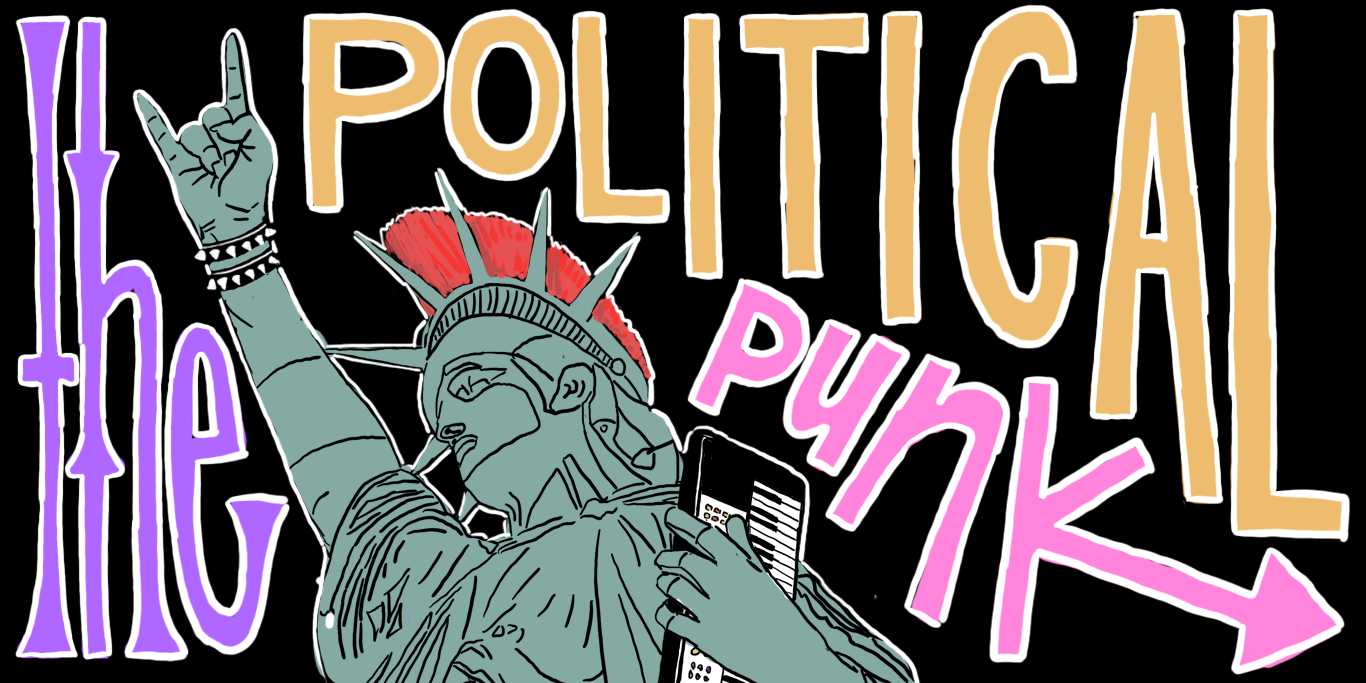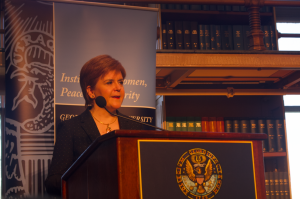On Jan. 31, Britain formally left the European Union. The decision to split after the 2016 referendum has been rife with controversy with gritty fights in Parliament, explosive elections, and growing generational and class gaps. The wrath of Brexit has made the past four years seem like ages. Before delving into this particular event, I want to take us back to another time when the region was in turmoil befitting of the punk classic, “Anarchy in the U.K.”
In the shadow of the Cold War and the Thatcher Era, Britain witnessed unemployment and homelessness rates sky-rocket. Many teenagers found themselves graduating from high school without hopes of attending university, heading instead to the local factories for a chance at work.
The frustration created a generational divide as young and old citizens competed for jobs and representation in the nation’s future economic policies. The divide also mirrored broader inequality trends, with young people earning lower incomes than their older peers, though all were economically suffering.
The failing infrastructure of social welfare generated conflict throughout the country between citizens who fought for their interests through protesting and voting. The cycle of debt, job loss, and sinking trust in the government spurred individuals to create separate spaces to voice their interests or join larger groups they felt stood for them.
Young people often turned to punk both as a personal sanctuary and means for vocalized liberation. In 1977, songs like The Clash’s “London’s Burning” and the Sex Pistols’ “Anarchy in the U.K.” dominated the expanding underground music movement in the U.K. Punk bands like the Sex Pistols, The Damned, The Adicts, and The Slits rebelled against the status quo with songs about protest, class struggle, and frustration. Their chaotic art form addressed the hopelessness and anger many young people felt about their political and economic conditions.
Today, with the U.K. in political and economic turmoil once again, it is worth taking another look at punk music. In 2016, 64 percent of citizens 65 and older and 60 percent of voters between the ages of 50 and 64 voted to leave the European Union, which means a majority of these people were alive during the punk movement. In fact, many of these voters were punks themselves.
At first, it may seem counterintuitive that those so adamantly against the Tories, the foremost British conservative party, during the late ’70s and early ’80s now align with conservative agendas. However, upon closer inspection, the motivations of the former punk movement have correlations with modern-day pro-Brexit sectors of society.
Punk celebrated failure and rebelled against “the status quo.” In the punks’ eyes, the overwhelming “love and unity” hippie movement of the ’60s and early ’70s had failed. The “togetherness” ideal from the “love and peace” generation was a grand illusion. Instead, young people relished the chance to separate themselves from the system and ideals they felt were responsible for contemporary problems and the grand disillusion among the masses.
The only hope for separation and regaining political agency was to forcibly reject all norms and everything that came before. Overlooked due to their young age and inexperience, punks made themselves known by acting in sudden and shocking ways, drawing the attention of those not part of the movement. Among these acts were the Sex Pistols cursing live on late night family television and the all-girl punk band the Slits spitting on stage and trashing hotel rooms so often they were banned from places ahead of time for their “unlady-like” and “immoral” behavior.
Outsiders often called these acts indecent, immoral, or downright disgusting. The element of being “off-putting” and “reactionary” was part of the act, as punks knew it was the only way to grab attention and enact the change they sought.
Once again, the citizens of the U.K. find themselves in an age where unity through globalism is prized, reminiscent of the ideals of the late ’70s. Not only are they being accepted and promoted in society, they are also embodied in institutions such as European Union.
Amidst the rising focus of globalism throughout the EU, many Brexit supporters feel forgotten and left out of decision-making circles. Many feel themselves suffering as individuals for the “good of the many,” especially at the hands of labor unions and EU standards for goods produced in each country. For individuals, however, it is difficult to see the prospective gains the global system has assured when they themselves are suffering.
The rise of the growing middle class also contributes to this. Young people around the world are increasingly more educated and informed. The older generations during the punk era did not have the means for higher education and took many more blue collar jobs, resulting in a striking contrast of representation in interests.
Punks, many from lower economic classes, saw themselves as representatives for all struggling individuals not a part of the privileged classes. Their movement wasn’t just for them as individuals, but for all those who couldn’t, or didn’t have the means to speak. Many Brexiters now feel they are doing the same. A Brexit supporter and an original advocate of the Remain campaign, punk legend and Sex Pistols frontman John “Johnny Rotten” Lydon said, “the working class have voted, and I support them. Let it be a nice exit.”
Thus, these older punks once again return to old methods: by rejecting the supposed cultural norms and system that rejected them. Only then can they posit true change. Like the punk movement, it is a sudden and shocking revolt. These tactics appear to have transferred to political leaders as well. Boris Johnson and the Tories rally citizens with their slogans, advertisements, and public stunts.
Adjusting to the present climate, the movement has taken on an international dimension. Brexiters, as well as many older punks, are rebelling not just against the national government, but also the “supra-national” global order. Punks refused to offer the citizen cooperation and approval they knew were necessary for democratic and constitutional governments to function. They rebelled at the level they knew would be the most effective for change. Now that Britain is integrated with the larger EU, the response has elevated to reflect that evolution.
Though debates will continue to rage between members of Parliament and the public, and political precedents will continue to be set, the essence of the rebellion remains the same. Those who feel left behind by the very institutions and cultures sworn to represent them will always rebel to create a reformed environment for themselves. There is a never-ending opportunity for punk to evolve for years to come as a voice for those who feel they are without one.
Recommended Listening:
The Clash – “White Riot”
The Sex Pistols – “God Save the Queen”
Anti-Pasti – “No Government”







Fantastic analysis, Cheyenne! All those coinciding historical and musical patterns make sense now. Amazing job!